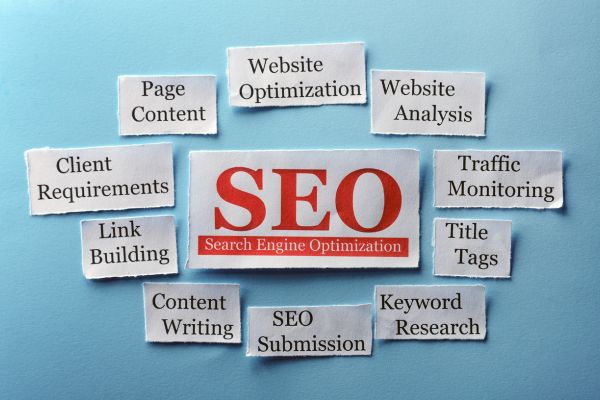Magento vs. Shopify: Which One is Right For You?

Choosing the right e-commerce platform is crucial for the success of your online business. With many options available, Magento and Shopify stand out as two of the most popular and powerful platforms. Both have their own strengths and limitations, making it essential to understand which suits your business needs best.
This article will break down the differences between Magento and Shopify to help you decide which one fits your requirements.
Overview of Magento and Shopify
Magento
Magento is an open-source e-commerce platform owned by Adobe. It is known for its flexibility, customisation options, and powerful features. Because it is open-source, you have complete control over your online store, making it ideal for businesses that want a highly tailored solution.
Magento comes in two versions:
- Magento Open Source (free to use but requires hosting and technical knowledge)
- Magento Commerce (a paid, cloud-hosted solution with additional enterprise features)
Magento is widely used by medium to large businesses with complex needs.
Shopify
Shopify is a hosted e-commerce platform, meaning the software, hosting, security, and updates are all taken care of by Shopify itself. It is a user-friendly solution designed to help entrepreneurs and small to medium businesses set up an online store quickly with minimal technical skills.
Shopify offers various pricing plans, including basic options for new sellers and advanced plans for growing businesses.
Ease of Use Magento
Magento is known for its steep learning curve. It requires a decent understanding of web development and server management. Since it is open-source, you or your technical team need to handle installation, maintenance, security, and hosting.
If you have an experienced developer or agency, Magento allows for extensive customisation but it may take longer to get your store up and running.
Shopify
Shopify is built for simplicity and ease of use. Its drag-and-drop interface lets anyone create and manage an online store without coding knowledge. Shopify handles all technical aspects like hosting, security, and updates.
You can launch a basic store in hours, making Shopify ideal if you want to start selling quickly without technical hassles.
Customisation and Flexibility
Magento
Magento offers unmatched customisation options. Because you have access to the source code, you can change almost any part of your store. You can add custom features, change the checkout process, integrate complex third-party tools, and design unique themes.
This flexibility is excellent if your business requires specific functionalities not available on standard platforms.
Shopify
Shopify provides a wide range of themes and apps to extend your store’s functionality. While it allows custom coding, it is limited compared to Magento because you don’t have access to the platform’s core code.
Shopify is best for businesses that want a straightforward, standard e-commerce experience with the ability to add popular features through apps.
Cost
Magento
Magento Open Source itself is free, but you need to pay for:
- Hosting (cloud or dedicated server)
- Security certificates (SSL)
- Development and design costs
- Ongoing maintenance and support
Magento Commerce (enterprise version) comes with a high annual fee, which can run into lakhs or even crores of rupees depending on your sales volume.
Overall, Magento can be expensive, especially for startups or small businesses.
Shopify
Shopify charges a monthly subscription fee, starting from a basic plan that is affordable for small businesses. The pricing covers:
- Hosting and security
- Technical maintenance and updates
- Customer support
Additional costs come from paid apps and premium themes. Shopify also charges transaction fees unless you use Shopify Payments.
For many businesses, Shopify provides predictable and lower costs compared to Magento.
Features and Scalability
Magento
Magento is feature-rich out of the box. It supports multiple languages, currencies, tax rules, and complex product types. You can run multiple stores from a single admin panel, making it ideal for businesses with varied product lines or international reach.
Magento scales well with growing businesses and large product catalogues, but scaling requires strong technical infrastructure and management.
Shopify
Shopify includes essential e-commerce features such as product management, payment gateways, discount codes, and customer management. You can add more advanced features via apps, but Shopify may have limits with very large inventories or custom business rules.
It is highly scalable for small to medium enterprises but might not meet the needs of very large, complex businesses.
SEO Capabilities
Magento
Magento offers excellent SEO features. You can control URL structures, meta tags, sitemaps, and schema markup. With full access to the backend, you can implement advanced SEO strategies to improve your search engine rankings.
However, since Magento requires more technical work, you may need an SEO expert who understands Magento’s architecture.
Shopify
Shopify is SEO-friendly with built-in tools for meta tags, sitemaps, and URLs. It automatically generates clean URLs and supports blogging and social media integration.
However, Shopify limits some SEO customisations due to its hosted nature, and URL structures are less flexible compared to Magento.
Security
Magento
Since Magento is self-hosted (for the open-source version), you are responsible for security. This means you need to ensure your hosting is secure, install SSL certificates, and regularly update the platform to protect against vulnerabilities.
Magento Commerce includes advanced security features and PCI compliance, but these come at a higher cost.
Shopify
Shopify handles all security measures, including SSL certificates and PCI compliance, as part of their service. Your store benefits from Shopify’s secure infrastructure without extra effort.
This makes Shopify a safer choice for businesses without dedicated IT security teams.
Payment Gateways and Transaction Fees
Magento
Magento allows integration with numerous payment gateways, giving you the freedom to choose based on your business location and customer preferences.
You don’t pay transaction fees to Magento, but you will have fees from payment processors.
Shopify
Shopify supports many payment gateways but charges transaction fees if you do not use Shopify Payments. This can add to the cost if you prefer third-party payment options.
Using Shopify Payments eliminates these fees but is not available in all countries.
Support and Community
Magento
Magento has a large global community of developers, but official support depends on the version you use. Magento Open Source users rely on forums and community help, while Magento Commerce customers get dedicated support.
You may need to hire developers or agencies for ongoing help.
Shopify
Shopify offers 24/7 customer support via chat, phone, and email. Their support is highly rated and helpful for store setup and troubleshooting.
Shopify also has an extensive knowledge base, tutorials, and a vibrant community of users.
Who Should Choose Magento?
Magento is best suited for:
- Medium to large businesses with complex requirements
- Companies with in-house technical expertise or access to skilled developers
- Businesses that need full control and customisation of their store
- Enterprises planning to scale extensively and run multiple stores
- Those ready to invest time and money into building a customised online store
If you want a robust, scalable, and highly customisable platform, Magento is a strong choice, but expect to invest more in development and maintenance.
Who Should Choose Shopify?
Shopify is ideal for:
- Startups and small to medium businesses wanting quick setup
- Entrepreneurs without technical knowledge or teams
- Businesses preferring a hassle-free, all-in-one hosted solution
- Sellers who want reliable customer support and security
- Companies looking for affordable, predictable monthly costs
Shopify lets you start selling quickly and focus more on your products and marketing instead of technical details.
Conclusion
Both Magento and Shopify are excellent e-commerce platforms but serve different business needs.
- If your business requires extensive customisation, high scalability, and you have the resources for technical management, Magento is the better option.
- If you want an easy-to-use platform with minimal setup, reliable support, and lower upfront costs, Shopify will serve you well.
Assess your business size, budget, technical skills, and long-term goals carefully before making the choice.
Calling all Marketers!
🔴 Are you tired of searching for the perfect job?
Whether you're into content writing, SEO, social media, graphic design, or video editing—full-time, freelance, remote, or onsite—we've got your back!
👉 We post over 30 job opportunities every single day. Yes, every day (all verified).
Join the most reliable and fastest-growing community out there! ❤️
And guess what? It’s FREE 🤑
✅ Join our WhatsApp Group (Click Here) and Telegram Channel (Click Here) today for instant updates.






